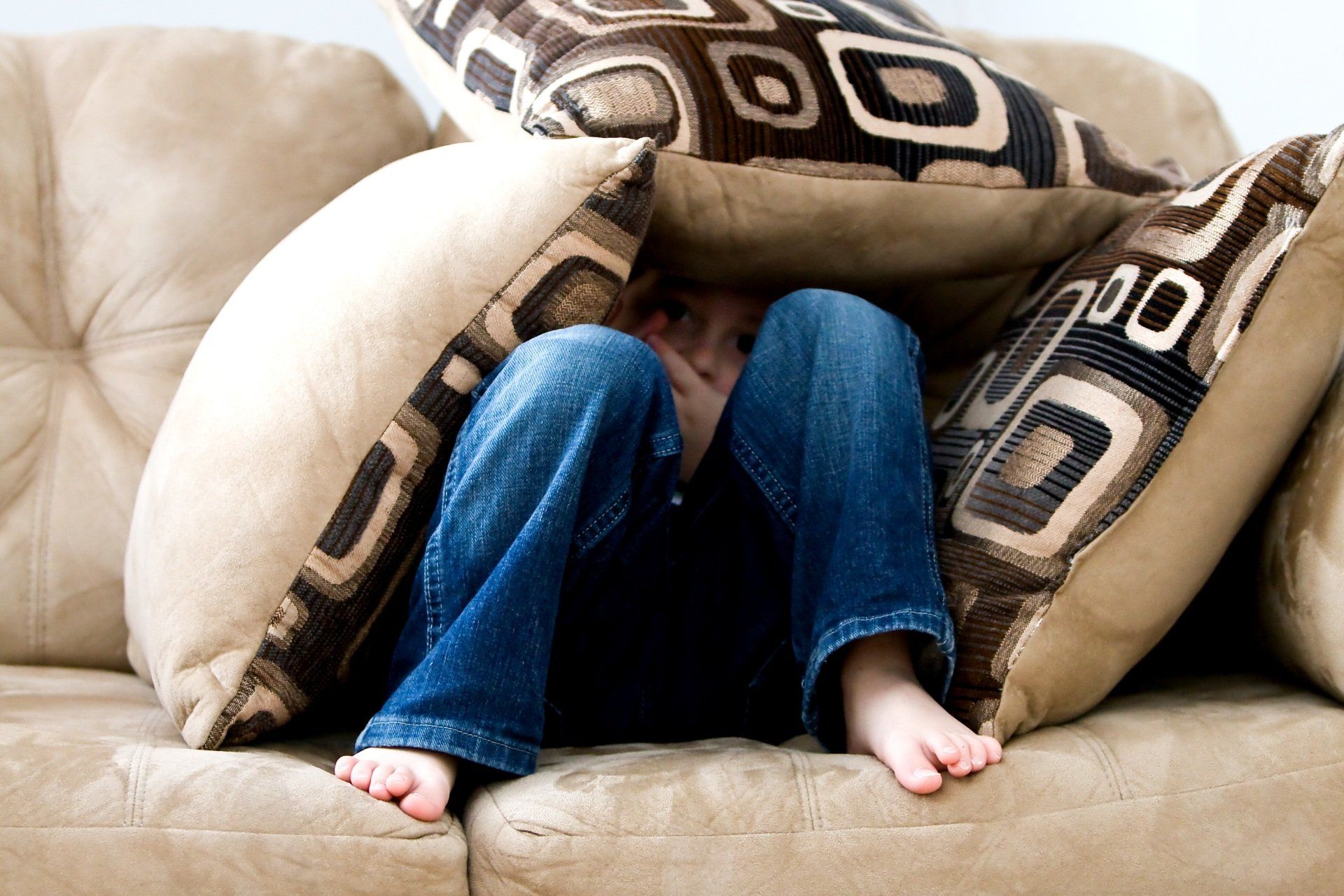Signs of Mental Health Conditions in Children
Sign of Mental Health Conditions in Children: How Parents Often Miss It!
written by Andrea Gibbs

When it comes to mental health conditions that affect children, many parents miss them. This is because they mostly happen before the child has reached school age. However, once they begin school, they are more likely to be detected by teachers and officials at school.
Signs of these conditions are not something parents should ignore, as any delay can lead to permanent damage to the child's brain development. Parents need to be aware of any signs that may indicate their little ones are in trouble so they can seek help from a professional immediately.
Signs of Mental Conditions in Children
If you are a parent, chances are you've noticed when your child is having difficulty in school or at home. But what if the problem isn't what you think it is?
Take a look at these signs of mental health conditions in children that parents often miss.
Lack of concentration
Children with mental health conditions can have problems concentrating, following instructions, focusing on what others say, and completing tasks. They may also have difficulty organizing their thoughts or remembering things.
Here are the possible reasons a child with mental health conditions may have poor concentration:
- ADHD
- Anxiety disorders
- Depression
- Learning disabilities
As soon as you notice your child has poor concentration, you should consult a doctor or a professional who can help identify the condition and provide your child with the proper treatment.
Bedwetting
Bedwetting is another common sign of mental health conditions in children. This condition has been associated with various emotions, from fear to resentment and anger. In some cases, cognitive developmental delays come hand in hand with bedwetting and can make it more difficult to resolve the issue. This might be due to reasons such as
Psychological or emotional problems: Bedwetting can result from emotional stress caused by traumatic events or disruptions in a child's normal routine.
For examples:
- moving to a new place
- making the transition from one school to another,
- the death of a loved one
These things can make the child insecure and frustrated, which is why they may not be able to control their bladder.
Cognitive developmental delays: This can cause the child to not fully understand the consequences of wetting their bed at night, or they may not realize it's happening.
Medical Problems: Bedwetting can be a sign of physical problems that affect the urinary tract and kidneys.
Lack of speaking
Lack of speaking can indicate a mental health condition. They may not talk at all or only speak erratically. Mental health conditions associated with this include:
- depression
- anxiety disorders
- bipolar disorder
- ADHD
- autism
Even when a lack of speaking could be due to other factors, such as shyness or introversion, parents must be aware that children may also suffer from something more serious.
Changes in sleep pattern
The most common sign of mental health conditions in children is trouble sleeping.
Kids who are depressed or anxious might have trouble falling asleep and staying asleep, while those with ADHD might be restless at night and have trouble winding down.
Sleep problems are also common for kids with PTSD, who may have nightmares or trouble staying asleep. And have you ever heard a child complain about having "the jitters" before bedtime? That could be a sign that they're suffering from OCD—they can't relax because they're worried about something going wrong at night (like having bad dreams).
Parents need to seek professional help if they suspect their child has a mental health condition because, without treatment, the child could suffer permanent damage to brain development.
Sudden changes in behavior
The signs of mental health conditions in children can be difficult to spot. Some are subtle, but others are so obvious that it's impossible to miss them. Still, sometimes even the most obvious signs are ignored by parents.
Sudden changes in behavior can be shown as:
Irritability or becoming withdrawn: The child becomes moody and defensive.
Symptoms might be the following:
- Sulking in a corner, refusing to talk to anyone
- Spending most of the day alone in their room, refusing to interact with family members and friends.
Acting out: The child changes their behavior, becoming mouthy or misbehaving.
Symptoms might be the following:
- Acting rudely or aggressively towards others-talking back to or ignoring parents and teachers-hitting and kicking other people in anger.
- Setting fires or destroying objects in their environment.
Strange or sad: The child becomes unusually quiet or withdrawn, even for them.
Symptoms might be the following:
- They spend all of their time alone, minding their own business-they suddenly lose interest in activities they used to enjoy.
- They seem depressed or sad for no apparent reason.
Frequent mood swings
Parents often miss the signs of mental health conditions in children because they're so used to their children's mood swings. But there is a difference between normal mood swings and those indicative of a mental health condition.
If your child is experiencing frequent mood swings, you should consider speaking with your pediatrician. Kids with mental health conditions can be prone to mood swings. The signs may be:
- being overly happy
- being unusually sad or despondent
- Phobias and abnormal fears, such as fear of certain animals or darkness.
- An individual's mood changes faster than it should in the blink of an eye.
Physical symptoms. If the child is experiencing cuts, bruises, or other forms of physical pain, it may indicate a mental health condition.
Appetite and sleep patterns change. Different things can cause changes in appetite or sleeping patterns, but a few conditions are always associated with an alteration in appetite or difficulty sleeping.
Conclusion:
Mental health conditions are a reality that affects lots of children. If you're concerned about your child's behavior, you should contact your doctor for an evaluation or consultation with a mental health professional. Parents need to be aware of the signs indicating mental health problems in children because it could be much more than just a typical bad behavior.
Author Bio
Andrea Gibbs is the Content Manager at SpringHive Web company, a firm that offers web design services, maintenance, and Internet marketing. She specializes in content marketing, social media, and SEO. She is also a blog contributor at Hanei Health Solutions, a mental health care center, where she writes about topics that relate to mental health and the medical field. When she's not writing or working, she enjoys spending time with her family and friends. Andrea is also an avid reader and loves to travel!
Sources:
Understanding Anxiety: Common Symptoms and Treatment Options (haneihealthsolutions.com)
Speech Deficits in Serious mental Illness: A Cognitive Resource Issue? - PMC (nih.gov)
Mood Swings in Children: Causes and What to Do - Cadey
Thank you for reading Patient Education Essentials, the Write Shift RN blog.
Disclaimer: This article was written as a guest post for Write Shift RN LLC's blog. The information in it may not be wholly fact-checked or edited, allowing the reader to see the writer's work and skills firsthand. This information is not intended as medical advice. It is for informational and educational purposes only. Always talk to your doctor or other qualified healthcare providers about any questions or concerns you may have regarding medical conditions.











